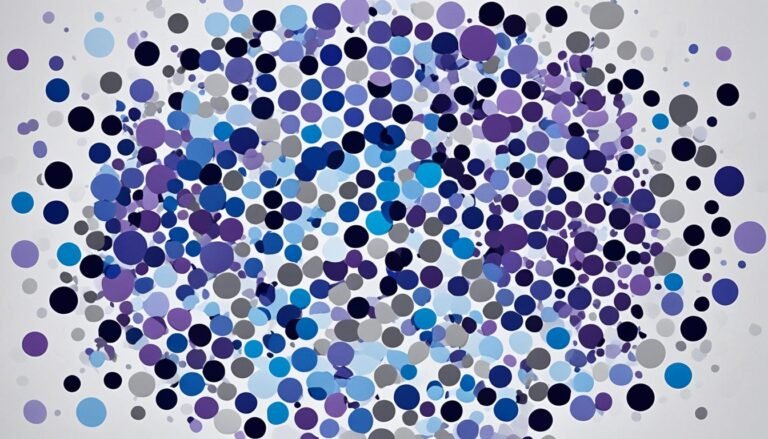How depression has never been an African disease?
The perception that depression has never been an African disease is a prevalent belief in many African communities. This belief is rooted in cultural norms and perceptions surrounding mental health. In Kenya, for example, depression is often seen as a non-issue and is not given much attention. African languages don’t even have a word for depression, further emphasizing its perceived insignificance. However, recent data from various sources suggest that depression is indeed prevalent in Africa and is a significant public health concern.
Key Takeaways:
- Depression is often perceived as a non-issue in many African communities.
- African languages lack a specific word for depression.
- Recent data indicate that depression is prevalent in Africa.
- Depression in Africa is a significant public health concern.
- Cultural perceptions play a role in the understanding of depression in Africa.
Challenges of Diagnosing Depression in Africa
One of the major challenges in diagnosing depression in Africa is the mental health stigma prevalent in many African communities. Unlike in Western societies where mental illnesses are recognized as medical conditions, African societies often view mental illness, including depression, as a spiritual or supernatural affliction. This cultural perception hinders the recognition and understanding of depression, making it difficult for individuals to seek help or for healthcare professionals to diagnose the condition accurately.
In addition to the mental health stigma, Africa faces other obstacles in diagnosing and treating depression due to limited access to mental health services and a shortage of mental health professionals. Many African countries lack sufficient mental health resources, including psychiatric facilities and trained professionals, leading to inadequate support for individuals suffering from depression. This scarcity of resources further amplifies the challenges of diagnosing and addressing depression effectively.
“The misconception that mental illness is a result of spiritual or supernatural factors inhibits the proper diagnosis and treatment of depression in many African communities.”
Furthermore, the lack of awareness and education about mental health conditions, including depression, contributes to the difficulty in diagnosing and addressing the issue in Africa. With limited knowledge and understanding, individuals may be unable to recognize the symptoms of depression and, therefore, fail to seek appropriate help. Improved education and awareness campaigns are crucial in overcoming these barriers to diagnosis and treatment.
The Stigma and Misconceptions Surrounding Mental Health in Africa
The mental health stigma in Africa stems from deeply ingrained cultural beliefs and norms that associate mental illness with weakness, shame, or punishment. These misconceptions prevent individuals from seeking professional help and discourage open discussions about mental health. To combat these harmful stigmas, it is essential to promote cultural sensitivity and educate communities about the true nature of mental health conditions like depression. By challenging these long-held beliefs, African societies can pave the way for better mental health care and support.
Addressing the challenges of diagnosing depression in Africa requires a multi-faceted approach that involves addressing the mental health stigma, increasing access to mental health services, and raising awareness about depression. By dismantling cultural barriers, investing in mental health infrastructure, and providing comprehensive support, African countries can make significant strides in diagnosing and effectively treating depression, improving the mental well-being of their communities.
| Challenges | Impact |
|---|---|
| Mental health stigma | Prevents recognition and understanding of depression |
| Limited access to mental health services | Diminishes resources and support for individuals |
| Shortage of mental health professionals | Reduces expertise and availability of care |
| Lack of awareness and education | Undermines recognition and seeking help for depression |
Image of Stethoscope Used to Diagnose Depression:
Prevalence of depression in Africa
Contrary to the belief that depression is not common in Africa, studies and surveys indicate that depression is a significant public health issue in the continent. Research has revealed alarming statistics regarding the prevalence of depression in several African countries, highlighting the urgent need for increased awareness, resources, and support for mental health.
In Kenya, for instance, it is estimated that a quarter of the population suffers from various mental diseases, including depression. This data emphasizes the scale of the problem and the necessity of addressing mental health concerns in the country. Similarly, in South Africa, about one-third of the population is affected by mental diseases, including depression. The high prevalence of depression in South Africa is coupled with limited access to psychiatric or therapeutic care, exacerbating the impact of the condition on individuals and communities.
Nigeria also reports a high prevalence of mental illnesses, including depression. Shockingly, fewer than 10% of mentally ill individuals in Nigeria have access to psychiatric care. This significant treatment gap highlights the urgent need for increased resources and support to meet the mental health needs of the Nigerian population.
These statistics not only shed light on the prevalence of depression in Africa but also underscore the challenges faced in addressing mental health issues. Limited access to mental health services, insufficient funding, and a shortage of mental health professionals contribute to the difficulty of providing adequate care and support for individuals suffering from depression.
It is crucial that governments, organizations, and stakeholders in Africa prioritize mental health and allocate resources to address the prevailing mental health challenges. By recognizing the prevalence of depression and working towards destigmatizing mental illness, African nations can strive towards building a society that promotes holistic well-being for all its citizens.
Key statistics of depression prevalence in Africa:
| Country | Prevalence of Depression |
|---|---|
| Kenya | 25% of the population |
| South Africa | 33% of the population |
| Nigeria | High prevalence, less than 10% have access to psychiatric care |
Understanding Depression in the African Context
Understanding depression in the African context is crucial for addressing the mental health needs of individuals and communities in the region. Cultural and socio-economic factors significantly influence mental health outcomes in Africa, shaping perceptions and responses to depression.
In many African communities, there is a prevailing belief that depression is a personal weakness or character flaw rather than a medical condition. This perception can create barriers to seeking help and acknowledging symptoms, as individuals may fear being stigmatized or judged. The lack of understanding and acceptance of depression as a legitimate illness can further exacerbate the challenges of addressing mental health in Africa.
Moreover, the impact of social and economic factors on psychological well-being cannot be underestimated in the African context. Poverty, unemployment, violence, and trauma are prevalent issues that contribute to the prevalence of depression and other mental health conditions. The stress and strain experienced in such challenging circumstances can take a toll on individuals’ mental well-being.
“Depression is more than just feeling sad; it’s a complex interplay of biological, psychological, and social factors. Understanding how these factors manifest in the African context is essential for providing appropriate support and interventions.” – Dr. Adebola Ogunleye, Psychiatrist
Recognizing that depression is not limited to any specific region or culture is crucial. Depression is a universal human experience, affecting individuals from all walks of life, including those in Africa. By acknowledging the impact of cultural and socio-economic factors and their influence on mental health, we can work towards improving understanding, awareness, and support for individuals struggling with depression in the African context.

The state of mental health services in Africa
The state of mental health services in Africa is a pressing issue that requires urgent attention. Across many countries in Africa, there is a noticeable lack of resources, inadequate funding, and a shortage of mental health professionals. This poses significant challenges in providing accessible and quality mental health care to the population.
For instance, Kenya, a country with a population of over 50 million people, has approximately 80 psychiatrists, representing a scarcity of mental health professionals. Additionally, the country spends only a minimal percentage of its health budget on mental health, further limiting the availability of mental health services. Similarly, South Africa and Nigeria, two of the most populous countries in Africa, also face challenges in ensuring adequate access to mental health care.
The limited availability of mental health services exacerbates the already high burden of mental illnesses, including depression, in Africa. This situation leaves many individuals without proper support and treatment, leading to a significant impact on their overall well-being and quality of life.
Challenges in mental health services in Africa:
- Lack of resources and infrastructure
- Inadequate funding for mental health
- Shortage of mental health professionals
- Insufficient mental health facilities
To address these challenges, it is crucial for governments and international organizations to prioritize mental health care in Africa. Increased investment in mental health infrastructure, including the establishment of more mental health facilities and training programs for professionals, is essential. Collaborations between governments, non-profit organizations, and international partners can play a significant role in improving access to mental health services.
The image below illustrates the contrast between the demand for mental health services and the availability of resources in Africa:
| Country | Population | Psychiatrists per 100,000 people | Percentage of health budget spent on mental health |
|---|---|---|---|
| Kenya | 50 million | 0.16 | Less than 1% |
| South Africa | 60 million | 0.15 | 3.3% |
| Nigeria | 200 million | 0.06 | Less than 1% |
This table clearly demonstrates the disparity between the number of psychiatrists per 100,000 people and the allocation of health budgets for mental health services in these countries.
The current state of mental health services in Africa highlights the urgent need for improved access to mental health care. By addressing these challenges, providing adequate resources and support, and reducing the stigma associated with mental illness, it is possible to pave the way for better mental health outcomes for the people of Africa.
Overcoming the stigma and addressing mental health in Africa
To address the stigma surrounding mental health and improve mental health outcomes in Africa, it is crucial to promote awareness, education, and destigmatization efforts. Community-based initiatives, advocacy campaigns, and support services can play a pivotal role in challenging cultural beliefs and promoting acceptance and understanding of mental illnesses, including depression.
Collaborations between governments, non-profit organizations, and international partners are needed to increase investment in mental health infrastructure, provide training for mental health professionals, and ensure the availability of comprehensive mental health services for all African communities. By overcoming the mental health stigma in Africa, individuals struggling with depression can receive the support they need, leading to improved well-being and a healthier society as a whole.

Examples of successful initiatives
In South Africa, the “Rise Above Stigma” campaign has been instrumental in challenging societal perceptions of mental health. The campaign employs influential public figures and community leaders to share their experiences with mental illnesses and promote open conversations on the topic. By humanizing mental health experiences and encouraging empathy, the campaign has helped reduce stigma and increase access to mental health services.
In Nigeria, the “Mental Health Matters” organization advocates for policy changes and improved resources for mental health care. Through partnerships with local communities and international organizations, they have facilitated awareness workshops, provided training for mental health workers, and developed peer support networks.
These examples demonstrate the power of collaboration, education, and community engagement in addressing mental health stigma and improving mental health outcomes in Africa.
Investment in mental health infrastructure
A significant barrier to addressing mental health in Africa is the lack of resources and infrastructure. Governments and international partners must prioritize mental health in their healthcare agendas and allocate sufficient funding to develop robust mental health systems. This includes establishing more mental health facilities, increasing the number of trained mental health professionals, and ensuring the availability of essential medications and therapies.
Training and education for mental health professionals
In many African countries, there is a shortage of mental health professionals, resulting in limited access to quality care. To address this issue, it is essential to invest in the training and education of mental health professionals. Government-funded scholarships, partnerships with academic institutions, and the establishment of specialized mental health training programs can help increase the number and expertise of mental health professionals in Africa.
Integration of mental health services into primary healthcare
Integrating mental health services into primary healthcare systems can improve access to mental health care for the general population. By incorporating mental health screenings, counseling services, and basic treatment options into primary healthcare facilities, individuals with mental health concerns can receive timely support and referral to specialized care when needed.
| Advantages of integrating mental health services into primary healthcare: |
|---|
| 1. Increased accessibility for individuals living in remote areas. |
| 2. Reduction of stigma associated with seeking mental health care at specialized facilities. |
| 3. Early identification and intervention for individuals with mental health issues. |
| 4. Enhanced collaboration and coordination between primary healthcare providers and mental health specialists. |
By adopting a comprehensive approach that encompasses awareness, education, collaboration, and infrastructure development, it is possible to overcome the stigma surrounding mental health and address the mental health needs of African communities. Only through collective efforts can Africa achieve improved mental health outcomes for its people.
Conclusion
In conclusion, the misconception that depression has never been an African disease is a result of cultural perceptions and the stigma surrounding mental health. However, data from various sources highlight the prevalence of depression in Africa, affecting a significant portion of the population. The primary challenges in diagnosing and addressing depression in Africa stem from the stigma associated with mental illness and the limited access to mental health services.
To effectively address mental health in Africa, it is crucial to understand the cultural context and challenge the prevailing narratives around depression. Increasing awareness and education about mental health can combat the stigma and promote acceptance within African communities. Additionally, investing in mental health infrastructure and expanding access to quality mental health services are essential steps in providing support for individuals struggling with depression.
By recognizing the importance of mental health in Africa and taking proactive measures to address it, we can break down the barriers to diagnosis and treatment of depression. Through collaborative efforts between governments, non-profit organizations, and international partners, we can work towards creating a future where mental health is given the attention and support it deserves in Africa.
FAQ
Is depression common in Africa?
Yes, studies and surveys indicate that depression is a significant public health issue in Africa.
What are the challenges of diagnosing depression in Africa?
The stigma surrounding mental health and the cultural perception of mental illness as a spiritual or supernatural affliction contribute to the challenges of diagnosing depression in Africa.
How prevalent is depression in Africa?
Depression is prevalent in Africa, with various sources estimating that a significant portion of the population suffers from depression.
How is depression understood in the African context?
A cultural belief that depression is a personal weakness or character flaw can prevent individuals in African communities from seeking help or acknowledging their symptoms.
What is the state of mental health services in Africa?
Many African countries face challenges due to a lack of resources, inadequate funding, and a shortage of mental health professionals, leading to limited access to mental health care.
How can the mental health stigma in Africa be addressed?
Increased awareness, education, and destigmatization efforts through community-based initiatives, advocacy campaigns, and support services are essential to challenge cultural beliefs and promote acceptance of mental illnesses, including depression.






